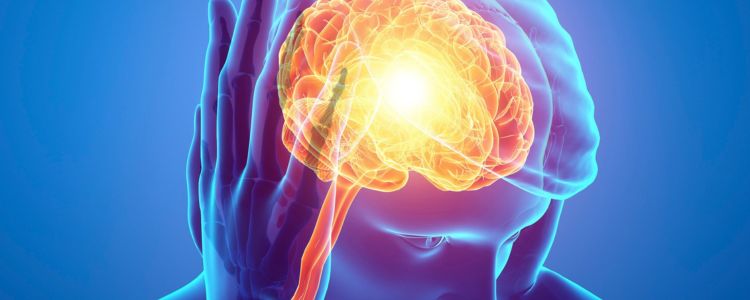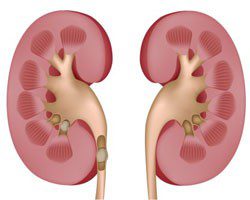
How Can Digestive Enzymes Affect Your Metabolism?
- Dr. Aditi Sharma
- No Comments

Metabolism refers to all the chemical reactions that take place within the body to maintain life. Digestive enzymes, which are basically proteins, play a crucial role in metabolism. They catalyse or speed up these chemical reactions that take place within cells and thus help to break down the food we eat into simpler molecules. This ensures better nutrient absorption by the body, which is essential for energy, repair, and growth. This article will shed light on how this enzymatic digestion affects the metabolism of the body.
Table of Contents
ToggleWhat are some common types of digestive enzymes?
Digestive enzymes are produced by different organs in the digestive system, including the salivary glands in mouth, pancreas, stomach, and small intestine. The digestive enzyme of a particular type targets a particular nutrient. These are: –
- Salivary glands (mouth) enzymes, such as salivary amylase, break down starch into maltose.
- Stomach or gastric enzymes such as
- Pepsin, which starts protein digestion.
- Gastric lipase, which helps in the minor fat digestion.
- Pancreatic enzymes, which are released into the small intestine, include
- Pancreatic amylase, which breaks starch into sugars.
- Trypsin and Chymotrypsin, which continue protein digestion.
- Pancreatic lipase is the main enzyme for fat digestion.
- Nucleases (DNAse, RNAse) which break down DNA and RNA.
- Small intestine or brush border enzymes such as
- Disaccharidases or maltase, sucrase and lactase
- Peptidase for the final breakdown of peptides into amino acids.
Also Read 5 Simple Yet Efficient Hacks to Increase Metabolism
How do digestive enzymes affect metabolism?
Digestive enzymes affect metabolism in the following ways: –
1. Enzymes lower activation energy
Every chemical process requires a certain amount of energy for its initiation. This is called activation energy. Enzymes reduce this energy barrier, thus making it faster and easier for metabolic reactions to occur even at body temperature.
2. Enzymes control the metabolic rate or the rate of metabolism
They catalyse the metabolic reactions, enabling cells to respond to changing environments or energy demands quickly. This is significant, as without them, the body’s reactions would be too slow, making it difficult to sustain life.
3. Enzymes show specificity
Each enzyme controls only a specific type of reaction to ensure that the correct chemical changes happen at the appropriate time and location. Thus, enzyme specificity helps to regulate even complex metabolic pathways in the body efficiently.
4. Enzymes can be regulated
Enzymes in the body can be turned off or on, or their action can be raised or decreased through special molecules like activators or inhibitors. This enzymatic regulation helps to maintain homeostasis or balance in the various metabolic processes of the body, such as digestion, respiration, or the synthesis of biomolecules.
5. Enzymes affect metabolism by linking various reactions
Enzymes link or couple reactions together to improve the overall efficiency of the various processes in the body. For example, breaking down glucose, which is an energy-releasing reaction, can be linked to a protein-synthesising reaction, which requires energy.
What are the problems related to digestive enzyme deficiency in the body?
If enough digestive enzymes are not produced in the body, a condition known as enzyme deficiency, then it can cause several digestive problems and impair nutrient assimilation. Main problems that can occur from low digestive enzymes are: –
- Poor digestion—The macronutrient breakdown in the food is not adequate, and the food feels like it’s sitting in the stomach.
- Bloating, flatulence and discomfort if this undigested food gets fermented by bacteria in the gut.
- Diarrhoea or Constipation
- Abdominal pain or cramps, particularly after consuming meals rich in proteins, fats or carbs.
- Nutrient deficiencies– Without enzymes, bioavailability (i.e. the rate and amount at which a nutrient, enters the bloodstream and is available for use by the body) of the essential nutrients goes down and this leads to issues like iron deficiency, fat-soluble vitamin deficiency (A, D, E, K) and vitamin B12 deficiency.
- Easy fatigue occurs as the nutrient utilisation for energy production gets impaired.
- Problem in weight management—Due to a deficiency of digestive enzymes, the metabolism for calorie expenditure and fat usage is impaired. As a result, fat starts to accumulate in the body, leading to weight gain.
- Improper hormone regulation, as enzymes are important for hormone synthesis, activation, and even breakdown and elimination.
Also Read 5 Common Habits Causing Bloating and Indigestion
What are the causes of digestive enzyme deficiency?
The various causes are: –
- Pancreatic disorders
- Genetic conditions in which people are born with a digestive enzyme deficiency.
- Gastrointestinal diseases
- Ageing, as the efficiency of the digestive system in synthesising enzymes, goes down with ageing.
- Poor lifestyle and unhealthy diet, such as long-term low fibre diet, junk food, excess smoking and alcohol, frequent overeating, lack of sleep and chronic stress.
- Medications, especially Proton pump inhibitors (PPIS), antacids and antibiotics. Antibiotics are especially harmful for gastrointestinal health as they destroy even the gut microbiota (i.e. trillions of microorganisms that survive in the digestive tract), which are otherwise beneficial to human beings for digestion and nutritional health.
What is the role of homoeopathy in digestive enzyme deficiency?
Homoeopathy has a significant role to play in the treatment of digestive enzymes deficiency and consequently to boost metabolism of the body for better utilisation of nutrients for energy, growth and repair of the body tissues. In case of digestive enzyme deficiency, the modern system of medicine relies heavily on enzyme supplements, which are nothing but capsules, powders, or pills that contain systemic or digestive enzymes. However, the effectiveness of these supplements varies from person to person. On the other hand, well-selected homoeopathic medicine treats the underlying cause of digestive enzyme deficiency and enables the body’s natural synthesis of these enzymes. In addition, homoeopathic medicines are harmless for the beneficial gut microbiota, which further helps improve digestion and nutritional health of the body.
Best homeopathic medicine to boost metabolism and improve enzyme production is the one which is the most similar in its symptomatology to the total disease manifestation in each individual case of the disease. For a prescription, a trained homoeopathic physician follows a holistic approach. A detailed case-history is taken, and the homeopathic physician elicits symptoms from both physical as well as emotional sphere of the patient for medicine prescription.
Conclusion
Digestive enzymes which are basically proteins play a crucial role in metabolism. Enzymes control the metabolic rate and improve the overall efficiency of the various processes in the body. Digestive enzyme deficiency can lead to poor digestion, diarrhoea or constipation, abdominal pain, nutrient deficiencies, fatigue, weight gain and improper hormone regulation. Causes of digestive enzyme deficiency are various pancreatic disorders, genetic conditions, gastrointestinal diseases, ageing, poor lifestyle, unhealthy diet and medications, especially Proton pump inhibitors (PPIS), antacids and antibiotics. Homeopathy has a significant role to play in treating digestive enzyme deficiency and boosting metabolism of the body in a safe and effective way.
Homoeopathic medicine removes the underlying cause of the disease and stimulates the body to synthesise enzymes adequately without being dependent on enzyme supplements. For medicine, it is advisable to refer to a trained homoeopathic physician rather than self-treating at home.





























